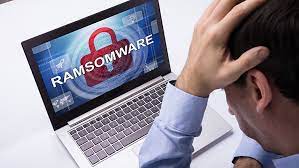5 Remedies to Help You Protect Yourself While Paying Online
Online shopping allows you to compare prices, locate deals, and save money from any location that has an internet or mobile data connection. However, as its popularity has grown, so have the hazards, with more and more individuals attempting to con you out of your money or steal your credit card information.
Online payments and banking systems have made it possible for us to not only pay and buy from anywhere but also to accomplish important transactions and investments online. All of this can be done with a few clicks from anywhere, at any time.
However, one wrong click on the web or on your smartphone might cost you money. As simple as online and digital payments are, ignorant judgments and the improper pushing of a single button may put you right in the hands of unscrupulous scammers aiming to catch you off guard and take your money.
However, knowledge is power. By equipping yourself with the power of information, you can make wise use of the convenience given by technology. Using Cart2India tracking, you can keep yourself safe while using their application. Remember that as technology advances, cyber-attack tactics and tools evolve, raising the likelihood of sophisticated frauds that may be launched from anywhere in the globe.
Here are 5 critical strategies to safeguard you while conducting secure online transactions:
Also Read: Reason Why Online Shopping Is Better Than Offline?
1.
Use smart and verified sites only
Before
inputting any personal or financial information, ensure that the website is
trustworthy and safe. The simplest method to tell is to look for
"https" at the start of a website's address. If there is no
"s" at the end of "http," the site is not encrypted, and
your data is not safe. For your safety, all reputable purchasing sites will bear
the "s" symbol.
2.
Maintain Separate Financial Data
Use a
dedicated workstation for all corporate banking activities for business users
in particular. Access the Internet and do non-banking activities on other
computers. When it comes time to retire the computer that was used to access
business finance, make a backup of any sensitive data and delete the hard disc
before discarding it.
3.
Maintain the Secrecy of Your
Passwords
Passwords
should not be shared, and papers containing financial data should not be left
in an unprotected place. Change your passwords on a frequent basis for further
security, and use a combination of letters, numbers, and unusual characters
wherever feasible. You should not use your default password for your wireless
network. Don't broadcast your SSID, and think about encrypting your network.
4.
Use two-factor authentication
After you've
logged in with your username and password, two-factor authentication needs you
to confirm your identity. In some situations, you will be required to verify
your identity by entering a code delivered to your phone through text message
or email. You should definitely go for two-factor authentication wherever it is
available.
5.
Do not use unsecured public Wi-Fi
Avoid using
unprotected public Wi-Fi on your devices if at all feasible. It can expose you
to exploitative behaviors if you use it. And, if you must use it, avoid
inputting sensitive information on any website, such as your Social Security
number or bank information. Better, while you're not at home, utilize a VPN, or
virtual private network, to perform your browsing. This encrypts the data you
send and receive, making it considerably more difficult to intercept.
Conclusion
According to
Cart2India Reviews, they are devoted to protecting your personal
and business information in the ever-changing Internet banking environment. This
e-commerce platform provides a variety of layered security measures to make
your Internet banking access safe and secure.




Comments
Post a Comment